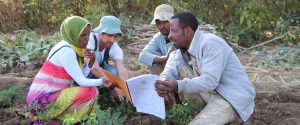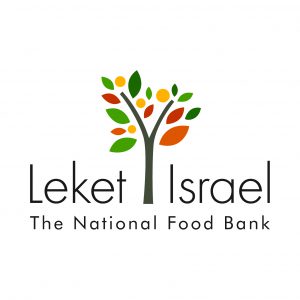Zero Hunger


Home » Zero Hunger » SDG 2 – COP28 & Food Security
SDG 2 – COP28 & Food Security
Don’t expect Israel to get all worked up about the arrival of the COP28 climate change summit in the UAE. The country has weightier issues on its mind – like war.
Nevertheless, the two are not necessarily disconnected. Indeed, since the war’s outbreak analysts have published various assessments about whether the Hamas attack against Israel will hamper the objectives of COP28.
Actually, before the October 7 Hamas massacre Israel was raring to go; even two months into the war it’s still trying to stay focused – as demonstrated by a broad forum (Hebrew) the Environmental Protection Ministry recently convened to discuss the country’s overall national climate change policy. Still, there are just too many reasons why the oxygen required to sustain the issue is in such short supply. To illustrate: the day that the government announced the 30 climate tech innovation companies chosen to attend the summit became ancient history when one of those firms – named by Time magazine as one of “the 200 extraordinary innovations changing our lives” – lost two employees to terrorist gunfire, with relatives of other employees murdered and wounded.
Perspective.
We truly hope that progress is made at COP28. For the moment, however, Israel is more concerned with survival – including when it comes to food security, which experts agree is definitely linked with climate action.


What does that have to do with Hamas? Everything: turns out that the area it stormed accounts (Hebrew) for 75% (!) of Israel’s total vegetable production, 20% of its fruit output and 6.5% of milk products. Hence the terrorists also attacked the country’s food security when they brutalized farmers, victimized foreign nationals in their employ, burned barns, slaughtered cows, booby-trapped chicken coops (Hebrew) and turned agricultural areas into a war zone.
Not that it should come as any surprise. Hamas has been targeting Israeli produce yields for years, particularly by setting fire to wheat fields; its agricultural terrorism picked up speed from 2018 onward, continuing through 2021 and right up to the time of its massive attack. In addition to farming areas, the damage to nature has also been tremendous.
Since Israelis basically view society as an extended family, it’s not surprising that the imminent threat to the country’s food security has generated an outpouring of local volunteers to tend fields, pick vegetables and milk cows.
Why? Aside from sincere patriotism – a deeply respected trait in Israel – the significance of the attacked farming collectives, the kibbutz, goes far beyond the agricultural. These communities enjoy a special status in the national ethos and historical narrative; in a nutshell: working the land lies at the core of Zionism.
Which brings us to Greta Thunberg – who is calling to “crush Zionism.” This decision to ditch her focus on climate action, with COP28 just around the corner, has of course made her a persona non grata in Israel – both with government, and climate activists. The latter have been bombarding her with criticism ranging from “one-sided, ill-informed, superficial” to:“The environment does not belong to the right or left wing; it belongs to all of us. Oh, Greta, in your own words: How dare you?“
But forget Greta. What really matters is how quickly Israel can regain its food security. The challenge is great, but its people are rising to the task – and already sowing wheat again.
Related articles


SDG 2-Fair Planet – Seeding the Way Forward
Zero Hunger In the UN goal of ‘Zero Hunger,’ the aim truly is zero. In Ethiopia, Despite a 26.1% decrease in the Global Hunger Index


SDG 2-UN SDG’s and the Growing Impact of the Alternative Protein
Zero Hunger The field of “Alternative Protein” or “Protein Substitutes” is a new and emerging field with significant growth in innovations and investments. A newly


SDG 2-Leket Israel
Zero Hunger “Leket Israel” Two initiatives of The National Food Bank, Leket Israel, are aimed at putting an end – or at the very least


















